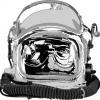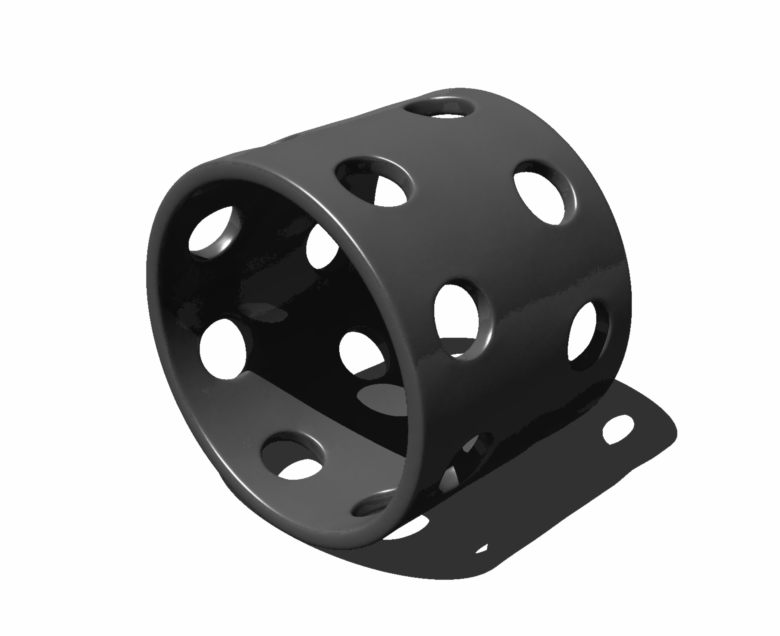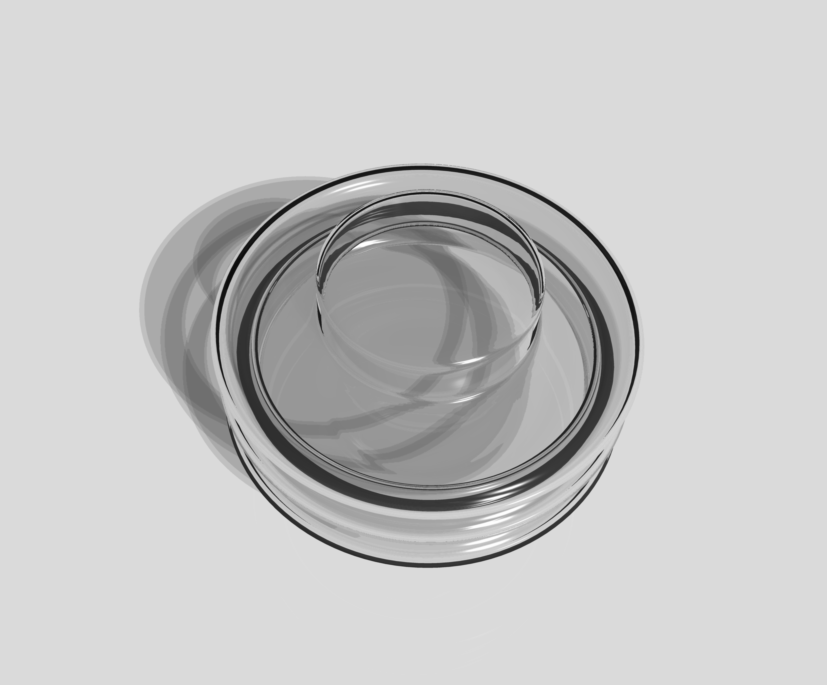Enjoying vertex modelling in DAZ Carrara
 otodomus
Posts: 332
otodomus
Posts: 332
Hi friends, I am writting to all you all, because I am enjoying quite a lot modelling in the vertex room of Carrara, and why I am posting this? because Carrara its my favorite rendering program, but until very recent time I have only rendered my projects on it, at this time I am modelling through the vertex room, and I have found it very useful and quite fun indeed.
The last was the result of a needed in to have models that were easy to UV map, everyone who has involved on this knows of what I am talking about, it could turns out in some very painful thing, that's why I find the vertex room as a very important process in my modeling job.
The other thing is that you can apply the SubD process to get nice rounded models with just few geometry, again you know how useful is this in the process of modelling. The following are some samples of what I have done in the last days, I know, they are very simple models, but to me are like trophies believe me:





Regards
Otto


Comments
So cool, Otto!
I'm right there with ya! It was actually learning how to make 3d models that eventually introduced me to DAZ 3D, and then finally to Carrara. Instead of modeling everything, I just used Carrara to build scenes, set up nice shaders and lighting, etc., and render them. It was only a couple years ago when I've finally started messing around with modeling from scratch, except for the few minor details I'd make from time to time. Before that I only used the modeler to tweak things - not create. But once I started actually building my own things, I start getting a whole new appreciation for this amazing software!
looks awesome
Thanks much!
I've started pretty much similar as you, modelling from scratch as you said its a very new thing to me, and I am surprised of what I can do on it...
That ship looks awesome!
Thanks! It was just a fun project that I did messing around to help answer some questions about UV mapping amongst other things. That was a while ago - just found that image floating around after I read this wonderful post! :)
When I first picked up Carrara, the forum was full of talk claiming how inadequate the modeling tools are so, even though I mostly let that negativity go straight through without a thought, I still never really set about creating my own, new models. I did, however, constantly use the vertex modeler to add new morphs into my V4 main character and her clothing and hair - and I loved how well the tools worked for that... certainly no complaints.
When I decided to start modeling from scratch, I put up a question about what modeler folks recommend in this forum. I already had Hexagon, and have used it for a few simple things, but I didn't like it compared to Carrara's vertex modeler. It was 3DAGE who came in and said something like: "Why look elsewhere if you (me) already own Carrara?", and then tossed up a few cool examples that he made just to illustrate his well-made point.
Just to try out the idea, I took what I was taught about modeling into Carrara's Vertex Model room, begining with a single cube and extarcting from it to form an overall shape, then tweaking the mesh and so on... I still have a hard time figuring out how it ended up getting such a negative reputation. I agree with some of the requests for improvement, but when it comes down to it, this is one wonderful set of modeling tools - even when I barely scratch the surface of what can be done!
I have more stuff that I've modeled but I can't show it off just yet. I love the models you've made. Very nicely modeled!
Thank you Dart, I've started to model in Carrara because I found that the rendering room in this program is so versatile and so useful, unless to my needings, I regularly model in SketchUp and once the models are done there I go to Carrara to get the renders, in my day by day job I work with logos and this software combination is really good to me, but as I said before at the time to UV map the models made in SU some mess always happened, it was the case of a metal texture I needed to model, but couldn't add the texture properly, that opens to me the way of the vertex room, and the possibilties are endless.
Here a sample of the work made in the metal textures:
In this previous case I wanted to have the texture as a real thing and be able to UV map correctly, I was very happy with the results.
Here a couple of more samples:
Later will try some other samples.
And thanks again!
Beautiful! So awesome. We don't often see people thanking Carrara for its UV Mapping possibilities... but here we are! I love that stamped metal texture model. Well... the others too! Very nice work!
Thank you Dart, the other thing that I find very nice at the time I work in the vertex room is that the SubD rules apply as in many other programs as Maya, this is really cool, the perforated tube and the screw I have posted earlier here were done this way, in this sample the same object but the one at the right with the SubD applied:
Those rules are like many of you may know that models to be rounded needs to be octagon or hexagon based, and faces should be preferrable in quads, or four sides, if you look closely to the last image those rules were applied there.
Geez Otodomus! I either didn't recognize the name or the avatar for the forum. Sorry about that!
I've seen some of those renders here before, and was impressed with them then, just as I am now. I take it you've been away for awhile? If so, welcome back!
Yes, and the SubD rules appear to be the same as what is used in the DAZ Studio newer figures as well, making it a really sweet workflow for those looking to make content. For example, if we make an item in Carrara using SubD, but not ever 'converting' the SubD result into actual vertices, and then we export that .obj and bring it into D|S, if we then apply SubD in D|S we get the same result as we had in Carrara's SubD. I'm not sure if this isn't true from other modelers (since I don't use any others), but it surely does make it convenient for adding the new content creation tools of the latest D|S as part of our workflow for using the new Genesis figures in Carrara. Genesis 3 isn't compatible (yet), so I haven't been working with that one, but the others are happy to recieve my models as conforming clothing items!
Also, I just seem to enjoy modeling in Carrara.
Some folks and friends tell me to try Modo or LightWave for modeling. So in all seriousness I go looking into them and, yes, I agree that they look like fantastic tools to use. So then I search for tutorials about people whom are making models that I might make, or doing projects that I might do, and in the end I find myself feeling that I'm just as happy using only Carrara for all of this stuff, rather than having to add yet another type of having to transfer back and forth via conversions or whatever. Carrara handles my needs just fine and then has the multitudes of tools for me to proceed to the next step, and the next, and so on.
I've looked at Modo, and it does have a degree of finesse that Carrrara lacks (and it's much less prone to crashing). But I found the UI cumbersome to navigate around, and it's £1450 (which is £1450 more than I have spare), and . . . I'm still using Carrara, at least for the time being.
I wonder what would happen with Carrara if it recieved that sort of constant development. Well... beyond the price going up! LOL
HI Otodomus :)
I recognise that Daz logo plate, ;)
I recall a discussion about using displacement maps to create the same effect with less work, but modelling something like that by hand is an education in itself,... and I'm glad you're enjoying the vertex modeller.
Nice models and very "efficient" use of Sub-D smoothing on low poly.
I've not done much in carrara recently, the last thing i built was this hover car idea,. still a work in progress.
Sweet!
Hehe I know, its just I am using now an avatar, and I haven't post recently but never abandoned the ship! Nice to see all of you here! :)
I am not familiar with the use of human characters, I am very tempted to do it I hope to have the time soon. But I can't imagine how SubD can work on the use of Genesis, it intrigues me :)
Oh yes I have received the same suggestions in to use other software, and I have tested and learned two great programs, one is Maya, I love it, but at the time of work with logos and rendering is not what I need, I feel more comfrotable in Carrara, the other great program is Alias AutoStudio, its a fascinating software that creates surface models based in vectors, its cool but again, to my professional purpouses I'm still with the blend of SU+Carrara.
The following are some professional works made in SketchUp and Carrara, to illustrate of what I have talking about, and why I prefer by much to these as my usual modelling software:
Hi! Yes we have talked about that and you know I'm still not knowing how to use the displacement function, I first went a bit deep in the use of the vertex room, and I discovered that the rules learned in Maya applied also in Carrara, and in some cases easier, with the plus that I am very happy with assemble room and its rendering process.
I'd love to see that car rendered, great job!
Cheers!
I like to mess around with shapes and create some textures, as example, the object I used to show the SubD process was duplicated and merged as a one polymesh, smoothed and rendered here:
And with some textured applied:
And what if I want to apply a logo to that crazy shape?
I know its a bit distorted but its beacuse the texture is a bit prominent, but what I like is that the logo is well done applied to the texture.
Another sample of how the logo image is applied to the texture:
Wow! Fantastic!
...and it's quite easy to set up, don't you think? I love the ease-of-use of the Texture Room and all of its many, many functions.
Genesis 1 was DAZ 3D's amazing step into using SubD Cage technology to create their incredible new figure! It's amazing how well it works. At zero SubD Smoothing, it's still over 20,000 polygons, so it's not right to consider it a low-res figure, though some of us will utilize it at this lowest topology setting for faster workflow and rendering, when we don't need all of the detail that a SubD of 1 or the default of 2 gives us to see and render. The newer HD improvements allow it to go to, and above SubD of 3! Yikes! And it looks fantastic!
Genesis 1 is really nice as a unisex figure. This did create some levels of difficulties when it came to creating things specific to the female gender, however, and Genesis 2 followed with a separate figure for Male and Female along with a lot more realism in the default and supporting shapes, as well as other improvements to the whole system. Now we're on Genesis 3, which is not supported in Carrara 8.5... at least not yet. It is a whole new step into the next generation of highly competitive, ultra-realistic human figures with a whole new rigging system and more bones for assymetrical adjustments of expressive muscles in the face, for example. Genesis 1 and 2 figures use what DAZ 3D calls "Triax" rigging, which is incredibly similar to the skeleton rigging system in Carrara - so they both work pretty well in Carrara 8.5
All of the Genesis figures are an enormous advancement towards an ease-of-use for making supporting conforming figures, like clothing and hair thanks to the robust new technologies that DAZ 3D has added to the system. Using it, we begin by making our supporting mesh to fit the default shape and the Genesis auto-follow system automatically calculates the shape changes needed to the new model as different shapes are applied to the base model - all without the new mesh artist having to create separate obj morph files to support each individual shape! Instead, we only need to create special supportive morph shapes where the auto-follow doesn't quite resolve the shape the way we want it to, or if we just want to create a special, new look for specific shapes, etc.,
DAZ Studio has been given major advances in helping us to create these supporting conforming figures - making it really fun to do. Here's one of the earlier tutorial videos made to help show us how it works... it's really sweet! As you'll see, this video was made for the beta version of the first D|S which supports this whole system. many improvements have been made since then, both to Studio as well as to the whole system as a whole.
pics
Oh yes, the texture room is quite useful once you understand how it works, and is not so hard, just to have in mind some short cuts and basic operations, again to me are much more easier to handle than in other programs.
That's great, and I think that would be to create characters right? My personal use of human bodies are limited as a human scale references, but again I am very tempted to create some personas, as not always have at hand the exact kind of people needed to illustrate the scenario, a worker a clerk or similar are my needeings.
Thanks for all your comments.
Those car renderings look great, and considering that the model was done entirely in the vertex room is great too!
One thing that I am doing recently is to follow some samples in how to model in Maya (there are no much people posting their modelling process using Carrara) Maya is much more popular than Carrara, but the process to model is very similar, I saw an image in the net in how to model a "T" tube shape with low-poly, and I did the test in Carrara:
The general techniques of modelling are pretty consistent through most 3D programs, with some variations of tools and functions.
most box modelling tutorials can be translated to most modelling programs.
Box modelling ,. starting with a simple low polygon shape (box) , then extruding, adding more polygons, to create a basic shape,. adding sub-division smoothing and continuing to add edges and curves, to refine the model.
Convering the sub-division smoothing levels into real polygons can aslo help, by instantly adding more polygons to your mesh, it allows you to work on that higher res mesh, and if needed, you can add a level of smoothing to it to soften the shape if needed.
Note: it's a good idea to save your "base" model, before you convert any levels of smoothing into real geometry.
Also,. since converting one level of smoothing will convert each polygon into four polygons, it's a good idea to convert only one or two levels to real pols as things can get big quickly
I always save out base models so that "When" I make a real mess , I can go back to the base and start again.
This pistol was modelled from a Rectangle, extruded and filled to meke a simple box,. then extruded to create the handle and barrel, then more edges were extracted,. a level of smoothing added, and more Extruding, extracting and selective edge creasing.
once the basic shape was done,. i used the extrude and bridge tools to create the trigger guard,. then drew a simple polyline shape, and extruded that to make the trigger,.
Yes, the tube with holes I have posted early was done using that tecnique, it is very nice.
That's a nice model, those are the kind of objects I am behind to, I think I am ready to model more complex shapes/models, I am thinking in some robot or similar, it would be a challenge since its my first time modelling entirely in Carrara. Will bring back with results.
Thanks!